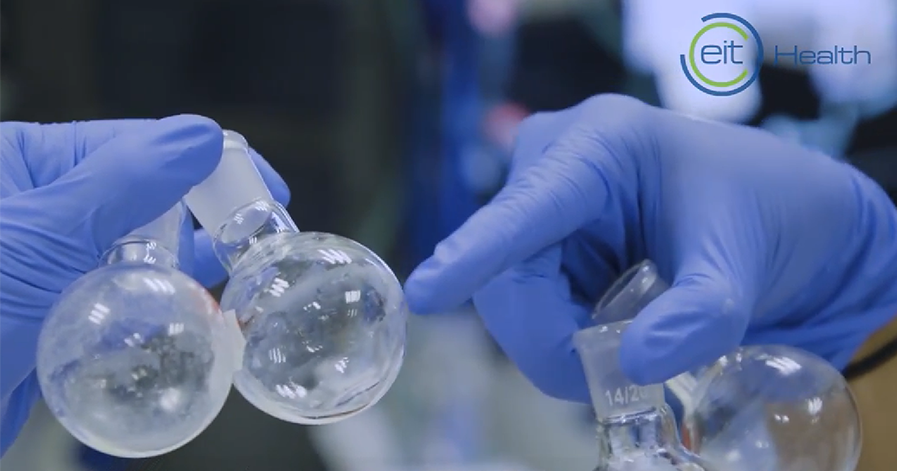Preclinical validation of new cancer inhibitor from EIT Health-supported Peptomyc

EIT Health-supported team fights skepticism in its war on cancer
Peptomyc S.L., a spin-off company in Barcelona supported and accelerated by EIT Health, has just published a paper in Science Translational Medicine that shows evidence of its Omomyc mini-protein as an efficient Myc inhibitor for the treatment of non-small cell lung cancer – one of the most difficult-to-treat cancers for both women and men.
The Science Translational Medicine article explains the methods that the Peptomyc team have investigated to offer more efficient and less toxic therapeutic options for the treatment of multiple types of cancer. Their activity has focused on a very special protein called Myc, which allows cancer cells to divide and survive treatment. In contrast to standard therapies, inhibiting Myc would selectively kill cancer cells without side effects in normal tissues.
As the publication explains, a team led by Dr Laura Soucek, CEO of Peptomyc and researcher at the Vall d’Hebron Institute of Oncology (VHIO), has had success inhibiting Myc in mouse models of non–small cell lung cancer, but the treatment has the potential to treat all cancer patients, regardless of their mutational status. Ïn this study, Dr. Soucek’s team show that the Omomyc mini-protein is active against diverse mutational profiles that are usually resistant to current therapies.
'When we started proposing inhibiting Myc, everybody told us that this was absolutely impossible. Instead, we designed these mini-proteins, which can enter the cells, penetrate their nuclei and attack Myc,' said Dr Soucek, whose company Peptomyc has received extensive support from EIT Health.
Research establishes effectiveness of Omomyc
For the very first, time the authors of the study establish that the Omomyc mini-protein can be purified and administered in vivo, rapidly reaching the tumor site. Results show that it successfully inhibits its target, leads to reduced tumor grade and promotes regression of existing disease.
The team also succeeded in scaling up the purification process of the mini-protein and re-assessing its therapeutic activity via intravenous administration. Its systemic delivery unleashes the anti-cancer potential of Omomyc and extends its application to the treatment of other tumors and metastases.
In this publication, the authors suggest that Omomyc may attack tumors not only through the blocking of proliferation and the induction of apoptosis, but also by triggering an immune response. The inhibitor can alter the profile of molecules released by cancer, to trick the immune system, and may increase the infiltration of T lymphocytes into the tumor. This is particularly relevant, since immunotherapy is currently showing increasing promise in the treatment of several tumour types.
EIT Health support of the company
'We started Peptomyc with our savings but luckily we managed to get públic and private funding, which allowed us to start the industrial production of this mini-protein and proceed preclinical safety studies. We have to show that our drug is not toxic, only then we will be able to use it for the first time in patients', explained Dr Soucek. 'EIT Health supported us all along this journey, from the very beginning. We have participated in several programmes and mentorship inictatives.'
About Peptomyc
Peptomyc is a spin-off company of the Vall d’Hebron Institute of Oncology (VHIO) and ICREA in Barcelona, Spain, focused on the development of a new generation of cell penetrating peptides (CPPs) targeting the Myc oncoprotein for cancer treatment. The company was founded in December 2014 and it is based on Dr Soucek’s scientific research in Omomyc (the best direct Myc inhibitor known to date) over the last twenty years.
'Our dream was not easy but it has been what gaies us the enthusiasm every morning to get out of bed and come to work. Defeating cancer was our driver all along,' said Dr. Soucek.


 Share this page
Share this page


